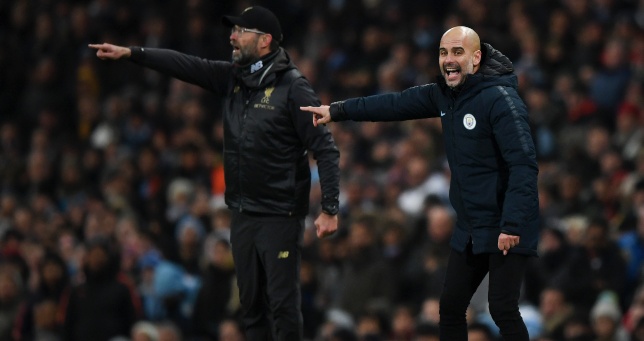
“If you are first, you are first. If you are second, you are nothing” – Bill Shankly.
Football’s intrinsic and unflinching concept of competition is rarely more heightened than during a title-deciding final day of Premier League action.
In a sport where you can win, lose or draw in any given game, the third possible outcome evaporates – unless in truly remarkable circumstance – when a campaign’s worth is judged in its totality.
This is the scenario for leaders Manchester City and second-placed Liverpool. Only a solitary – and utterly crucial – point separates the pair after 37 beguiling rounds, only one of them will be crowned champions.
First place is celebrated and the vanquished commiserate. An unbending notion memorably laid out above by Reds luminary, Shankly.
This binary outlook, however, will receive unprecedented challenge during Sunday’s finale.
When the pair have relentlessly exhibited unalloyed excellence without compare in the rest of the division, how can either, feasibly, be cast as a loser? All that they have attained wrought “nothing” by the absence of winners’ medals and celebratory fireworks?
The status quo should remain on Sunday. Especially when neither combatant has dropped a point since March 3’s goalless Merseyside derby.
But should the sustained genius of Football Writers’ Association Footballer of the Year winner Raheem Sterling become tainted by a City slip-up at safe Brighton & Hove Albion?
Professional Footballers’ Association Men’s Players’ Player of the Year recipient Virgil van Dijk’s omnipotent defending blemished in the aftermath of a clash against seventh-placed Wolverhampton Wanderers at Anfield, when a 30th victory from 38 run-outs probably will not be enough?
At a time when the top 10 of Deloitte’s Football Money League is populated by six Premier League clubs and an unprecedented four different clubs from one country – England – will compete in the Champions League and Europa League finals, top-flight dominance by the duo gains more merit.
What they have achieved bears repetition – and exaltation.
Liverpool sit 23 points ahead of third-placed Chelsea – a gap that may extend further on Sunday. This would be the biggest differential, purely on points, from the top two and the rest since the Football League began in 1888/89.
Tomorrow.@ManCity or @LFC. Only one team can lift the 2018/19 #PL trophy... pic.twitter.com/ZdyXDjFSBG
— Premier League (@premierleague) May 11, 2019
According to Opta, only two other seasons are similar in these 131 years – 1970/71 with Arsenal and Leeds (20 points to third-placed Tottenham) and 2011/12 with City and Manchester United (19 points to third-placed Arsenal).
In 1970/71, only two points were awarded per win. This figure, however, is potentially skewed by a 42-game season.
The goal differences of City (+69) and Liverpool (+65) more than doubles their closest competitor (Tottenham with +28).
Both the top two have conceded only 22 times. Tottenham boast the third-stingiest defence with 39 let in.
When it comes to scoring, Arsenal’s 70 is 17 fewer than Liverpool (87) and 21 fewer than City (91).
City’s likely final points tally of 98 is only bettered by their own 100 from 2017/18. Liverpool’s 97 would be the third highest.
Three of 2018/19’s top-four goal scorers play for Liverpool or City, with 22-goal Mohamed Salah leading the way. At the opposite end, the teams possess 20 clean sheets apiece from 37 fixtures – Chelsea are next with 15.
City were a class apart during 2017/18, breaking 12 team records upon their way to Premier League glory. To sustain these towering standards is astounding.
But should this Liverpool be considered inferior when they have engineered a position of possible usurpation, despite finishing 25 points in arrears 12 months ago?
🔵🔴
— Premier League (@premierleague) May 10, 2019
Where in the world will YOU be watching the final day of the #PL season from? pic.twitter.com/6DdFMBPQQR
City boss Pep Guardiola’s assessment this week that “Both Liverpool and us deserve the title” stands as counterpoint to the dominant sporting adage espoused by the likes of Shankly, who himself won 10 trophies from 1959-74 at Liverpool.
Shared veneration, however, should not upset traditionalists in this situation. Unique – and worthy – occasion doubles the acclaim of sporting brilliance, rather than halving it into insignificance.
Two clubs do not, typically, control English football. A situation that renders such chases de rigueur, elsewhere.
This is not the Scottish Premiership, where Aberdeen last broke the ‘Old Firm’ duopoly in 1984/85. Or even La Liga where Real Madrid and Barcelona have finished top in 14 of the past 15 seasons.
Abstraction should be prominent when judging City and Liverpool’s outstanding seasons. Outcome, this Sunday, should not reign supreme.